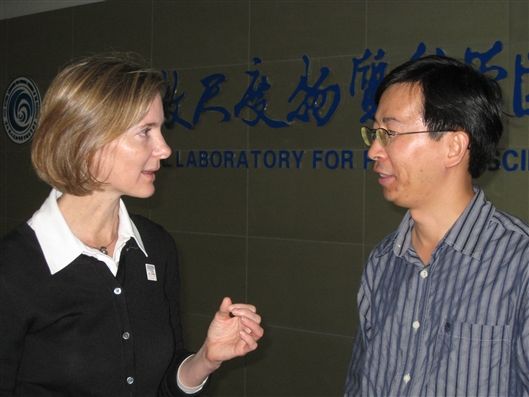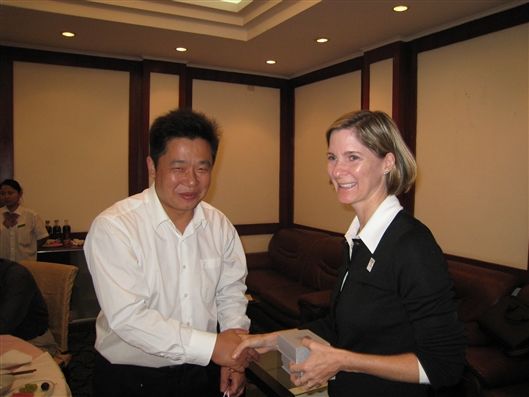博文
English: Bridge and Barrier
 精选
精选
||
Thanks for your welcoming comments for my first blog entry! Since posting it, I've visited several other universities in China. I went looking for posters and kiosks to find out what students are doing, but now I know from your comments that most of the “action” and information is online. Wish I had more time to browse blogs to find out!
During my visits, it's my privilege to meet with some of China's top scientists. Many of them (over 600!) serve as editors for Elsevier journals, so they both write and review lots of research papers. I can't claim to understand their research in detail, because I'm not a scientist myself. But what I do hear, loud and clear, is that they are their students are locked in a mighty struggle with English, today's international language of science.
Now, I love my mother tongue. I can quote miles of Shakespeare. It's automatic for me to look at a word and "see" its Latin or Greek roots. But since my first job after Yale was teaching English at Hunan Medical College in Changsha, I have first-hand experience with the headaches English can cause for non-native speakers. Back then, the chief source for learning English was the radio show “Follow Me.” Today, it's shows like “Friends”! But even though English has become an important "bridge"from China to the world, it's clear that it also remains a big barrier, especially for scientists.
To take just one example, look at the words through, thought, and though – weird spellings, totally different pronunciations – WHY does English have to be so hard?! When it comes to expressing precise scientific meanings and subtle differences in results, I can't imagine a more complex application of the language.
Many scientists suggest that Elsevier provide language polishing services. That's not our core competency, so we don't do that ourselves. But we do refer writers to expert companies who edit and polish for a fee. Here's the link to our Elsevier website for all the language companies we recommend. If you want to try such a service, take a look. Some of them offer free price estimates: http://www.elsevier.com/wps/find/authorsview.authors/languagepolishing
There are a lot of native English-speakers studying or teaching on Chinese campuses. I'd like to know whether you researchers think it's possible for these people to help with your papers. Easy or hard to connect with them? Do they have the time and expertise to help? Let me know. Maybe we can work together to build a “network” of native English speakers in China and abroad (with scientific backgrounds) who could help Chinese researchers with their English.
In the meantime, here's my offer to you, my blog readers: if you want to post your abstract, or a SHORT paragraph from an English paper you're working on, I'd be happy to give you some English tips and help you polish it. I'll put all my comments online here, so don't post if you're too shy for everyone to see my feedback. And I can only do a few people – say, the first five of you to submit your paragraphs. Let me see what you're struggling with and I will try to help. Once a teacher, always a teacher!

with Prof. Yu Shuhong, Cheung Kong Chair Professor, Vice Director, School of Chemistry, USTC.

with Prof. Xu Tongwen, USTC, editorial board member of Elsevier journal, Journal of Membrane Science
科学殿堂的语言
https://blog.sciencenet.cn/blog-4114-9127.html
上一篇:On Safari: Seeking the "Special Flavor" of China's Universities
下一篇:Around the world....and back again